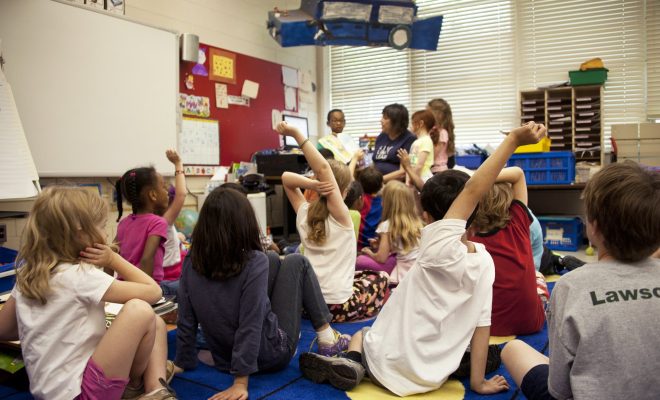Nurturing Positive Sibling Relationship

One of the best relationships that one can have is with siblings. Friendships may come and go, but sibling relationships are for life. Siblings can figure you out no matter how you may fake or keep things with them because you grew up in the same household, share the same parents, and are both part of each other’s memories and experiences. The history you have with your siblings and the ups and downs you have together significantly impact who you are today. That’s what makes sibling relationships invaluable and unique.
The Impact of Siblings on Child’s Development
Having a sibling can positively affect a child’s development in many ways. The child learns various social skills, which are vital in forming relationships with others. The siblings also serve as role models and encouragers for the child as they form attitudes and habits. As the child grows into adulthood, they become more agreeable and sympathetic with a happier disposition.
What to Expect When the Sibling is Born
The older child often displayed childish behaviors like throwing tantrums, whining, yelling, and even bedwetting. This is due to the older child’s jealousy because attention is divided or even shifted significantly to the newborn. Psychologists suggest involving the older child in caring for the baby to address this behavior.
Following Through the Older Child
Time and effort managing will be quite a challenge for parents. But ample attention must still be given to the older child. Like parents, the older child is also going through the difficulties of adjusting, so the child should be given regular one-on-one time. Encourage the older child to be open about their feelings and questions. Acknowledge their negative emotions and assure them that they can still be a great brother or sister no matter how they feel at the moment.
Healthy Sibling Dynamics
As siblings grow, sibling dynamics are bound to change. You will notice that their relationship goes through cycles of friendship and rivalry. It will vary depending on the changes that happen in each other’s
lives, from being together constantly each day to moving out to college or for a job, returning home for reunions, etc. While they are still in their formative years, parents need to allow the siblings’ bond to develop at their own pace. As this takes place, build an environment where healthy connections and cooperation thrive and be there to give ample guidance to the children to foster mutually beneficial friendships.
The Truth About Birth Order
You might have heard from other experienced parents’ theories and even stereotyping about each sibling based on their birth order. Like the firstborn being more reliable and successful, the middle child being misunderstood, and the youngest being the most sociable, charming, and persuasive. However, these do not qualify as facts. Various studies show that birth order does not directly affect the development of the child’s predisposition.
Does birth order affect personality?
The Proceedings of the National Academy of Sciences (PNAS) research did not find a connection between birth order to children’s personality. Quoting from their journal, “…we found no birth-order effects in extraversion, emotional stability, agreeableness, conscientiousness, or imagination.”. (Julia M. Rohrer, Boris Egloff and Stefan C. Schmukle, 2015)
Is the oldest child smarter than later-born siblings?
Pieces of evidence show that firstborns possess slightly higher IQs than their younger siblings, attributing to the parental age and the number of resources and attention that were maximized as they grew up. But in terms of particular traits attributed to being smart or gifted, researchers have found no consistent evidence that is automatically found on each sibling based on their birth order.
Are older siblings more responsible?
Though researchers found firstborn children to do better in school throughout childhood, that does not imply that they outshine their siblings in every aspect of life.
Firstborn children were able to get attention from parents, so they were reared and monitored closely. As a result, they are pushed to meet parents’ expectations, and therefore, they naturally become more responsible. But this can be done by other siblings, too, in other ways and approaches.
Do middle-born children get less attention?
The concept of middle-child syndrome suggests that the child born in this order is often excluded, ignored, and outrightly neglected because parents often give responsibilities and attention to firstborns, and privileges are granted to the youngest. The attention that they once had been the youngest was passed on to the youngest, obliging them to be masters of compromise.
Are last-borns less conforming?
The pampering of the family members to the lastborn may affect the conforming attitude of the child. They may feel less capable and less experienced in the process; hence, they may lean towards having others do things for them and be more carefree with novel experiences. This is why last-borns tend to appear charming and convincing to others.
Sibling Rivalry is Natural
Sibling rivalry is a common term to connote the conflict between siblings about different things.
There are various manifestations of this kind of conflict. Statistically, 85 percent of siblings are into the verbally aggressive type, 74 percent are into pushing and shoving, and 40 percent are of the physically hurting kind—including biting, kicking, and punching. The causes of sibling rivalry can be rooted in wanting parent approval and attention through achievement, compliance, and competition.
When are children aware of unfair treatment from parents?
Children’s social understanding starts as early as 0 to 8, as suggested by Erik Erikson’s psychosocial theory. In fact, in the first stage, which he calls the Basic Trust vs. Mistrust, children develop their sense of being nurtured from an environment of trust and security. Eventually, they will successfully acquire the confidence to explore the larger world around them. Having said this, the child at this stage can already sense the amount of affection, attention, warmth, pride, and discipline as they grow and sees how the amount given to others.
At what age does rivalry start?
Rivalry among siblings may start as early as age 3. Because kids this age are still ego-centric, they still want things for themselves. They naturally compete to define who they are, their talents and skills, and to showcase distinction from their siblings. They also see situations wherein they want something, but the parent will attend to the other sibling first. At this age, children are not yet broad in understanding why they are not being attended to at the moment or when their wants are not given first.
What is the replacement child?
A replacement child is the one born into a family a period after the death of a child. This also refers to the child made to feel responsible for the misfortunes of the other sibling, like being handicapped, challenged, or incapacitated. Adopted children of parents who could not have children can also be included in this category. Replacement children may be at risk of psychological difficulties because of the parent’s inability to fully grieve and then instill the characteristics of the dead child in them.
Why do my children fight so much?
Although fights among siblings are natural, Child psychiatrist Richard Hoetzel, M.D., pointed out that reasons for too much fighting can have a much deeper cause. Hence, parents are advised to find out the root cause of the fight. What might’ve started the brawl? Is it because of jealousy? Is my child angry about something? There are cases wherein the root cause of fights is a result of the child’s bitterness towards parents or at any family member being taken out of the sibling. Calmly talk to the children and set an environment where they can open up their feelings and deal with them proactively.
Can fighting between siblings be used positively?
Parents tend to feel annoyed or frustrated when they hear children fight over petty things. They find sibling conflicts stressful, especially when they recur or happen at the wrong place and time. However, fighting or conflict plays an integral part in developing social skills. It is an avenue to resolve their differences, test their powers, and express their emotions. Relationships evolve, and so do conflicts. Healthy sibling rivalries lead to closeness, good companionship, and cooperation in the long run.
Favoritism Among Children
As much as they would not want to, most parents end up favoring one of their children over others. Favoritism can occur in various ways, from devoting more time to one child, more affection, more privilege on this child, being stricter here than the other, etc. Some favoritism is called for, like the arrival of a newborn or attending to an ill sibling or special needs. And then there is the other favoritism, the unfair kind like in some cultures, favor is given to boys. Favoritism can cause rivalry or even resentment among siblings. Children inevitably will know and will be made aware of this. As a result, a child who feels unfavored will direct this angst not to the parents but the sibling.
Do parents favor girls over boys?
Girls tend to be more affectionate, compliant, and less aggressive than boys. Naturally, parents delight in well-behaved children because they “make life easier” for them. While for boys who are mobile and active in nature, parents would, of course, direct discipline and reprimand them, especially when they are becoming unruly. This is why girls are seen to be favored over boys. However, this is not so for male-dominated cultures.
Does stress have an impact on how parents favor and treat children?
Parents have a lot of things on their plates, which increases their stress levels. Stress sometimes prevents the parents from being in check of their treatment with their children and may even sacrifice their time and attention. Hence, when they favor those who are not too handful to manage. Also, because of marital and financial problems, parents tend to favor children who will become productive and thrive in the future.
What happens when a parent plays favorites?
When parents play favorites, children will get affected by it. Children who are less favored may grow to be depressed, insecure, least confident, aggressive, and demotivated. Often it would reflect on their school performance. While the favored children are not off the hook either, they will, either way, suffer the outcome of unequal treatment. The siblings’ relationship is challenged as the resentment grows over time if not addressed.






